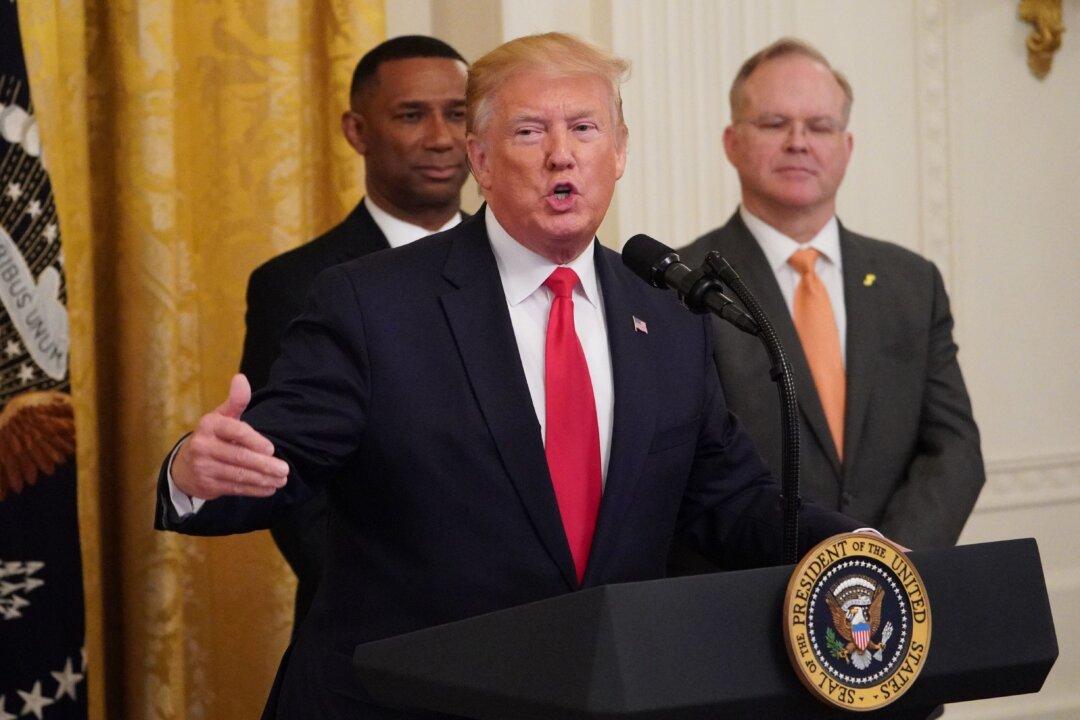President Donald Trump sought to provide clarification for his comments on June 14 about accepting information about political opponents from a foreign government after facing criticism over his remarks.
Trump said in a phone interview with “Fox & Friends“ that he would review the information offered by a foreign government and pass it on to the FBI if anything was ”incorrect or badly stated.”




